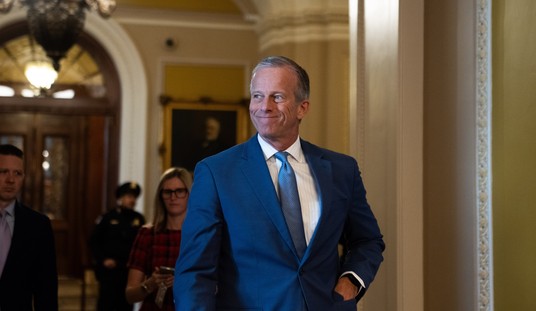Americans know their nation is facing many disquieting problems: high unemployment, a government debt spiraling out of control, and a recently downgraded credit rating, to name but a few.
Here's another problem that most likely have never heard of: America’s utter lack of a plan for storing radioactive nuclear waste. Though it may not be making headlines, it's another drag on industry and an obstacle to solving the nation’s energy challenges.
In April, the Obama administration halted the development of the planned Yucca Mountain nuclear waste repository, leaving the United States without any long-term storage site for radioactive waste. But the root of the problem goes back farther, to 1982, when the Nuclear Waste Policy Act put the federal government in charge of managing nuclear waste.
This was the beginning of the Yucca Mountain project, intended to serve as the national storage site for spent nuclear fuel and high-level radioactive waste. Despite collecting nearly $38.5 billion from electricity consumers and spending nearly $15 billion on research, the federal government has still not collected one atom of nuclear waste.
Without the Yucca Mountain project under way, it is unclear when—if at all—the government will take responsibility for collecting nuclear waste. The government’s inability to fulfill its legal obligations is a major obstacle in moving nuclear energy forward. Government failure to manage nuclear waste threatens the future of a reliable, emission-free, low-cost energy source. Simply put, America’s strategy of relying on government to manage nuclear waste has failed.
Recommended
Luckily, for this problem at least, there's a solution. The United States needs to privatize its commercial nuclear waste management. Federal regulators at the Environmental Protection Agency and the Nuclear Regulatory Commission should continue to exercise oversight and set rules to protect public health and safety. But, there should be no role for the government in planning or paying for the disposal of commercial nuclear waste.
As Jack Spencer, research fellow in nuclear policy at the Heritage Foundation explains, private firms already operate all aspects of nuclear power stations except waste disposal. These companies enrich fuel, transport uranium to the site, build plants, and oversee the operation of the fuel reactors – but the government alone is in charge of dealing with nuclear waste.
Private firms pay the government a fixed fee to dispose of the waste they produce. Currently, the federal government collects a flat fee of 0.1 cents per kilowatt hour from nuclear energy producers to dispose of used fuel. Though it has collected billions of dollars in these fees, the government has failed to provide the services it’s obligated to supply.
By privatizing nuclear waste management, companies would have to bear responsibility for the nuclear waste that they produce. Firms would have incentive to use fuel more efficiently and to develop cost-effective methods of managing their waste. For instance, given that almost 95% of spent fuel potentially could be reused for energy, firms might choose to recycle spent fuel rather than place it in repositories. When nuclear waste can be managed more cheaply and effectively, the cost of providing nuclear power will fall. Many groups stand to benefit from this: manufacturers who depend on reliable, low-cost electricity, and retail consumers who want to spend less on their electricity bills.
Critics may argue that nuclear waste is simply too dangerous to be handled by private corporations. Yet, private industry already routinely handles numerous forms of hazardous waste, including arsenic, asbestos, and cyanide, without much public comment. In contrast to government, private firms have incentive to dispose of hazardous materials safely and cost-efficiently.
Since 1982, the federal government has been charged with managing nuclear waste, and failed to meet this obligation. It is too dangerous to allow government to continue to do nothing to manage nuclear waste. The best solution is to allow markets to work freely.























Join the conversation as a VIP Member